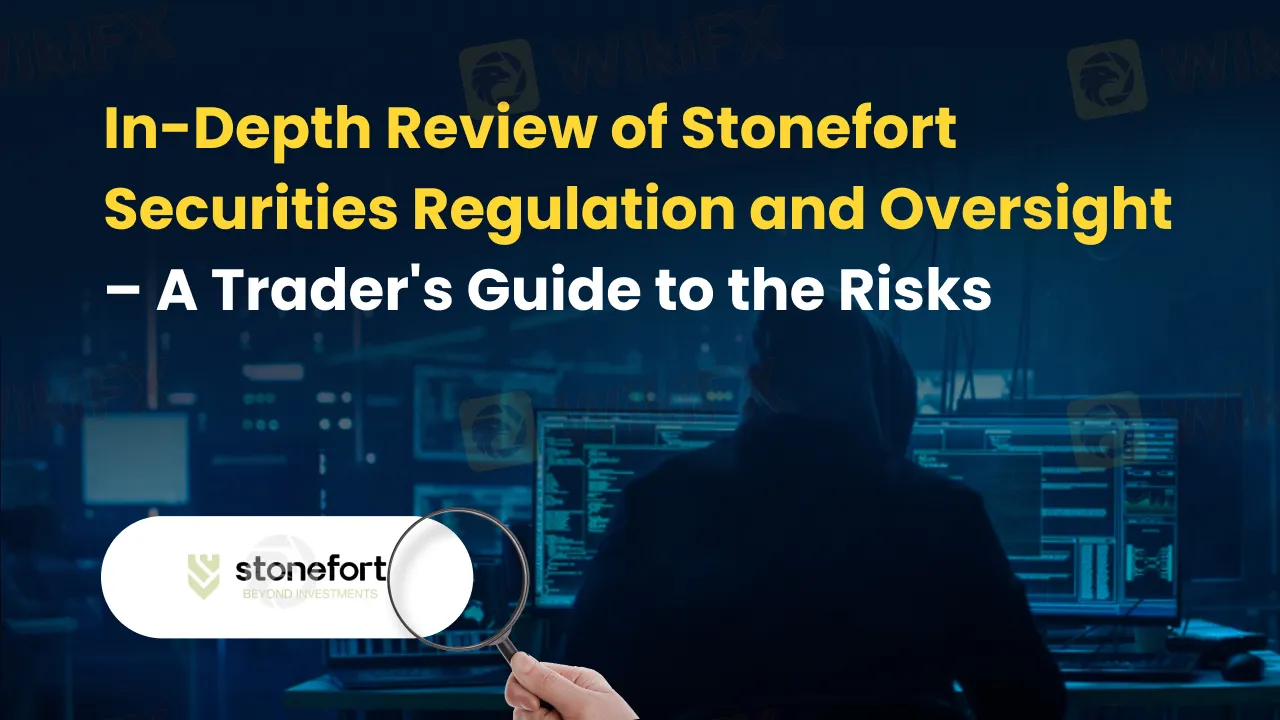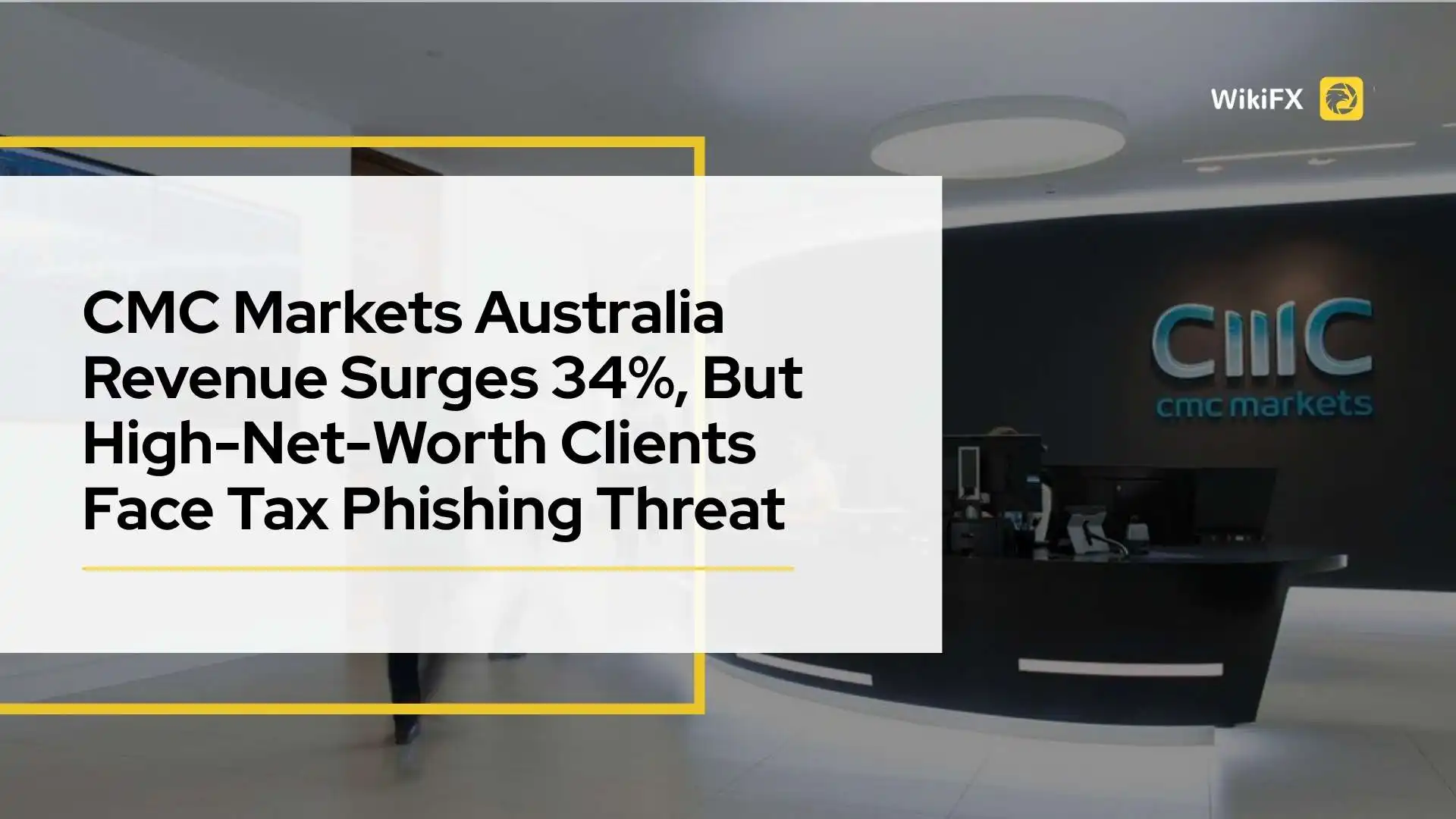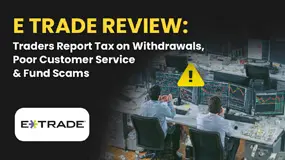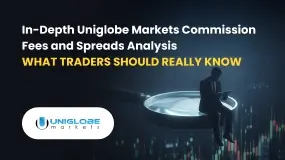简体中文
繁體中文
English
Pусский
日本語
ภาษาไทย
Tiếng Việt
Bahasa Indonesia
Español
हिन्दी
Filippiiniläinen
Français
Deutsch
Português
Türkçe
한국어
العربية
In-Depth Review of Stonefort Securities Regulation and Oversight – A Trader's Guide to the Risks
Abstract:For experienced traders, the process of selecting a new broker transcends a simple comparison of spreads and leverage. It is a meticulous due diligence exercise where the integrity of the broker's regulatory framework is paramount. Stonefort Securities, a relatively new entrant in the crowded brokerage space, presents a complex and often contradictory profile. On one hand, it boasts a modern MT5 platform and a stream of positive user testimonials. On the other hand, it is shadowed by severe regulatory warnings that question the very foundation of its operations. This in-depth review focuses on the core issue for any long-term trader: Stonefort Securities regulation and oversight. We will dissect the broker's corporate structure, scrutinize its licensing claims, and analyze what the data implies for trader protection and fund security. For traders evaluating whether Stonefort Securities is a trustworthy partner, understanding these details is not just important—it is essential.

For experienced traders, the process of selecting a new broker transcends a simple comparison of spreads and leverage. It is a meticulous due diligence exercise where the integrity of the broker's regulatory framework is paramount. Stonefort Securities, a relatively new entrant in the crowded brokerage space, presents a complex and often contradictory profile. On one hand, it boasts a modern MT5 platform and a stream of positive user testimonials. On the other hand, it is shadowed by severe regulatory warnings that question the very foundation of its operations.
This in-depth review focuses on the core issue for any long-term trader: Stonefort Securities regulation and oversight. We will dissect the broker's corporate structure, scrutinize its licensing claims, and analyze what the data implies for trader protection and fund security. For traders evaluating whether Stonefort Securities is a trustworthy partner, understanding these details is not just important—it is essential.
Unpacking Stonefort Securities' Corporate and Regulatory Identity
A broker's reliability begins with its legal and regulatory foundation. Where a firm is registered and which authorities oversee its activities directly impact the level of protection a client receives. In the case of Stonefort Securities, the corporate structure immediately raises flags characteristic of an offshore brokerage model.
Offshore Foundations: Saint Lucia and Mauritius
According to data from WikiFX, Stonefort Securities Limited is registered in Saint Lucia. This Caribbean nation is a well-known offshore financial center. While registration in such a jurisdiction is not illegal, it carries significant implications for traders. Offshore regulators typically have less stringent requirements for capital adequacy, client fund segregation, and operational transparency compared to top-tier regulators such as the UK's FCA, Australia's ASIC, or Switzerland's FINMA.
Key consequences of an offshore registration often include:
• Limited Recourse: In the event of a dispute or broker insolvency, traders may have very limited legal or regulatory channels to pursue claims.
• Absence of Compensation Schemes: Unlike brokers in major financial hubs, offshore entities are rarely part of investor compensation funds that protect client capital up to a certain limit if the firm fails.
• Permissive Leverage: The high leverage offered (up to 1:500) is a hallmark of offshore brokers, as they are not bound by the stricter limits imposed by Tier-1 regulators to protect retail clients.
Adding to this concern is the broker's short operational history of just 1-2 years. In the financial industry, longevity is a proxy for stability and resilience. A firm with a brief track record has not yet proven its ability to navigate different market cycles or sustain its business model over the long term.
Further complicating the picture is the existence of a related company, Stonefort Securities Ltd, which was reportedly established in Mauritius on June 10, 2024. The broker's live MT5 trading server is also located in Mauritius. This dual offshore presence in Saint Lucia and Mauritius reinforces the firm's deliberate choice to operate from jurisdictions with lighter regulatory oversight, a strategy that prioritizes operational flexibility for the broker over robust protection for the client.
The Critical UAE SCA License Discrepancy
This is the most alarming aspect of Stonefort Securities' regulatory profile. The broker does hold a license from the United Arab Emirates Securities and Commodities Authority (SCA), but a detailed examination reveals a critical and dangerous mismatch.
License Details:
• Regulator: United Arab Emirates Securities and Commodities Authority (SCA)
• Licensed Entity: Stonefort Securities LLC
• License Number: 20200000226
• License Type: Investment Advisory License
The crucial detail here is the license type. An “Investment Advisory License” permits a firm to provide financial advice and recommendations. It does not authorize the firm to operate as a forex or CFD brokerage, which involves executing trades, holding client funds for trading purposes, and acting as a counterparty to transactions.
WikiFX has issued a stark and unambiguous warning on this matter:
“This broker exceeds the business scope regulated by the United Arab Emirates SCA (license number: 20200000226) Investment Advisory Licence Non-Forex License. Please be aware of the risk!”
In simple terms, Stonefort Securities appears to be offering forex and CFD trading services while only being licensed to give advice. This practice, known as “exceeding regulatory scope,” is a major violation of financial conduct. For traders, the implications are severe. By engaging in activities for which the broker is not licensed, clients are almost certainly operating outside the protective umbrella of the SCA. Any protections related to client fund segregation, negative balance protection, or dispute resolution offered by the SCA would likely not apply to the unauthorized brokerage activities.
This finding directly contradicts the broker's own marketing, where its website claims it is “Multi-Regulated” and a “reputable broker regulated globally.” The evidence strongly suggests this is not the case for its forex and CFD trading operations.
A Deep Dive into the WikiFX Regulatory Assessment
Third-party regulatory verification tools are indispensable for modern traders. The assessment of Stonefort Securities by WikiFX, a global broker inquiry app, paints a grim picture that corroborates the licensing issues.
The broker receives an extremely low score on the platform, accompanied by one of the most direct warnings a trader can see:
“Warning: Low score, please stay away!”
Such explicit advice is not issued lightly and reflects a consensus of high-risk indicators. The platform also flags the broker for a “Suspicious Overrun,” a term used to describe the exact issue identified with its SCA license—operating beyond its authorized business scope.
For any trader conducting a Stonefort Securities regulatory status and license check, these direct warnings are the most critical takeaway. The combination of an offshore registration, a short history, and a license that does not cover its primary business activity creates a risk profile that most experienced traders would find unacceptable. Traders can visit WikiFX to view the full dashboard, including the license details and official warnings, for themselves.
Analyzing Trading Conditions and Platform Technology
While regulation is the primary concern, a broker's trading environment and technology are also crucial. Here, Stonefort Securities presents a more mixed, though still concerning, picture.
Account Structure and Costs
According to its website, Stonefort offers a tiered account structure aimed at different levels of traders. However, there are inconsistencies between the data presented on its site and that collected by independent sources.
Advertised Account Tiers:
• Starter: Minimum deposit of $50, spreads from 1.3 pips, zero commission, 1:500 leverage.
• Advanced: Minimum deposit of $3,000, spreads from 1.0 pips, zero commission, 1:500 leverage.
• Elite: Minimum deposit of $10,000, spreads from 0.01 pips, $8 commission, 1:200 leverage.
The high minimum deposit of $10,000 for the ECN-style Elite account places it out of reach for many traders. More importantly, there are discrepancies in the fee structure. While the broker's website advertises an $8 commission and spreads from 0.01 pips for the Elite account, WikiFX data records a $7 commission and spreads “From 0.1” pips. Such inconsistencies, though minor, can be indicative of a lack of clear and stable pricing information.
Platform and Execution Environment
One of the few clear positives for Stonefort Securities is its trading platform. The broker provides the industry-leading MetaTrader 5 (MT5) platform. MT5 is renowned for its advanced charting capabilities, extensive library of indicators, support for algorithmic trading via Expert Advisors (EAs), and sophisticated order management tools.
Crucially, WikiFX identifies that Stonefort operates its MT5 platform under a “Full License.” This is a significant distinction. A full license means the broker has purchased the entire server software from MetaQuotes, giving it direct control over administration, stability, and security. This is generally considered far more reliable than a “white-label” setup, where a broker essentially rents the platform from another provider.
The server infrastructure includes:
• StonefortSecurities-Server (Live trading), located in Mauritius.
• StonefortSecurities-Demo (Demo trading), located in Singapore.
While the full-license MT5 is a mark of technological investment, the location of the live server in Mauritius once again points back to the broker's offshore operational framework.
Contradictory Signals: User Reviews vs Regulatory Reality
A search for user feedback on Stonefort Securities reveals another layer of contradiction. The WikiFX portal lists numerous positive reviews, with users praising fast withdrawals, helpful support staff, and a user-friendly platform. Many reviews single out specific employees by name, such as “Hassan Abdulla” and “Jack,” for their excellent service.
However, these reviews come with a critical caveat: they are all marked as “Unverified.” While they may be genuine, the pattern of mentioning specific staff members and the overwhelmingly positive tone stand in stark contrast to the severe regulatory warnings. For an experienced trader, this should be a red flag.
It is essential to apply the correct hierarchy of importance here. Operational smoothness—such as fast withdrawals and responsive customer service—is desirable, but it can never compensate for a fundamental lack of proper regulatory authorization. A broker can process withdrawals efficiently for months or even years to build a reputation, but if it is operating outside the law and without proper oversight, client funds are never truly secure. The moment the broker faces financial difficulty or decides to cease operations, clients will find they have no regulatory body to turn to for protection or fund recovery.
Evaluating Other Claims and Potential Red Flags
A final look at the broker's marketing materials reveals another questionable claim. The Stonefort Securities website features a banner proclaiming it won the award for “Best Emerging Broker, Money Expo India 2025.” Claiming an award for a year that has not yet occurred is, at best, a glaring typo and, at worst, a fabricated credential designed to manufacture legitimacy. Either way, it further erodes the broker's credibility and suggests a lack of attention to detail or a willingness to misrepresent its standing.
The broker also advertises a wide array of deposit and withdrawal methods, including credit cards, bank transfers, and various cryptocurrencies. While this offers convenience, the inclusion of crypto can be a double-edged sword. Crypto transactions are often irreversible and can complicate the process of tracing and recovering funds in the event of a dispute.
Conclusion: Is Stonefort Securities a Trustworthy Partner for Long-Term Trading?
After a thorough analysis of Stonefort Securities regulation and oversight, the verdict is clear. Despite offering a robust MT5 platform and garnering some positive (though unverified) user feedback, the broker is defined by a critical and non-negotiable regulatory failure.
The key findings are:
1. Offshore Registration: The broker is registered in Saint Lucia and operates its live server from Mauritius, placing it firmly in lightly regulated offshore jurisdictions with minimal client protection.
2. Exceeding Regulatory Scope: It holds only an “Investment Advisory License” from the UAE's SCA but offers full forex and CFD brokerage services, an activity for which it is not authorized. This means clients are likely not protected by the regulator.
3. Severe Warnings: Third-party evaluators have issued explicit warnings, including “Low score, please stay away!” and “Suspicious Overrun,” signaling an extremely high-risk profile.
4. Questionable Claims: The broker's claims of being “Multi-Regulated” are misleading, and its advertised award for “2025” undermines its credibility.
For an experienced trader whose priority is capital preservation and long-term security, these red flags are insurmountable. The allure of a modern platform or reports of fast withdrawals pale in comparison to the fundamental risk of entrusting capital to a firm that is not properly licensed for its core business. The entire structure appears designed to evade stringent regulatory scrutiny, leaving clients exposed.
Before committing any capital, cautious traders should consult WikiFX to get a comprehensive and structured overview of the broker's regulatory status, user feedback, and overall risk score. In the case of Stonefort Securities, the evidence overwhelmingly suggests that the risks far outweigh any potential benefits.
Do not miss the latest forex updates. Join any of these elite chat groups (OIFSYYXKC3, 403M82PDMX or W2LRJZXB7G) today by following the instructions shown below.

Disclaimer:
The views in this article only represent the author's personal views, and do not constitute investment advice on this platform. This platform does not guarantee the accuracy, completeness and timeliness of the information in the article, and will not be liable for any loss caused by the use of or reliance on the information in the article.
Read more

CMC Markets Australia Revenue Surges 34%, But High-Net-Worth Clients Face Tax Phishing Threat
CMC Markets Australia reports a 34% revenue surge. Simultaneously, the company's high-net-worth clients are facing a serious tax-related phishing threat.

E TRADE Review: Traders Report Tax on Withdrawals, Poor Customer Service & Fund Scams
Has your E Trade forex trading account been charged a withholding tax fee? Did your account get blocked because of multiple deposits? Did you have to constantly call the officials to unblock your account? Failed to open a premium savings account despite submitting multiple documents? Is fund transfer too much of a hassle at E Trade? Did you find the E Trade customer support service not helpful? In this E Trade review article, we have shared certain complaints. Take a look!

mBank Exposed: Top Reasons Why Customers are Giving Thumbs Down to This Bank
Do you find mBank services too slow or unresponsive? Do you find your account getting blocked? Failing to access your account online due to several systemic glitches? Can’t perform the transactions on the mBank app? Do you also witness inappropriate stop-level trade execution by the financial services provider? You are not alone! Frustrated by these unfortunate circumstances, many of its clients have shared negative mBank reviews online. In this article, we have shared some of the reviews. Read on!

In-Depth Uniglobe Markets Commission Fees and Spreads Analysis – What Traders Should Really Know
For experienced traders, the cost of execution is a critical factor in broker selection. Low spreads, fair commissions, and transparent pricing can be the difference between a profitable and a losing strategy over the long term. This has led many to scrutinize the offerings of brokers like Uniglobe Markets, which presents a tiered account structure promising competitive conditions. However, a professional evaluation demands more than a surface-level look at marketing claims. It requires a deep, data-driven analysis of the real trading costs, set against the backdrop of the broker's operational integrity and safety. This comprehensive Uniglobe Markets commission fees and spreads analysis will deconstruct the broker's pricing model, examining its account types, typical spreads, commission policies, and potential ancillary costs. Using data primarily sourced from the global broker inquiry platform WikiFX, we will provide a clear-eyed view of the Uniglobe Markets spreads commissions prici
WikiFX Broker
Latest News
WikiFX's New Evaluation of ATM Capital LTD: Does its License Protect the Arab Investor?
How a Fake Moomoo Ad Led to the “New Dream Voyage 5” Scam
Is Axi Legit? A Data-Driven Analysis of Its Regulatory Standing and Trader Feedback
Trive Investigation: High Score, Hidden Risk - The Profit Paradox
In-Depth Uniglobe Markets Commission Fees and Spreads Analysis – What Traders Should Really Know
FXPesa Review: Are Traders Facing High Slippage, Fund Losses & Withdrawal Denials?
CMC Markets Australia Revenue Surges 34%, But High-Net-Worth Clients Face Tax Phishing Threat
Bessent believes there won't be a recession in 2026 but says some sectors are challenged
Young Singaporean Trader Grew USD 52 into a USD 107,700 Portfolio
Is GGCC Legit? A Data-Driven Analysis for Experienced Traders
Currency Calculator



